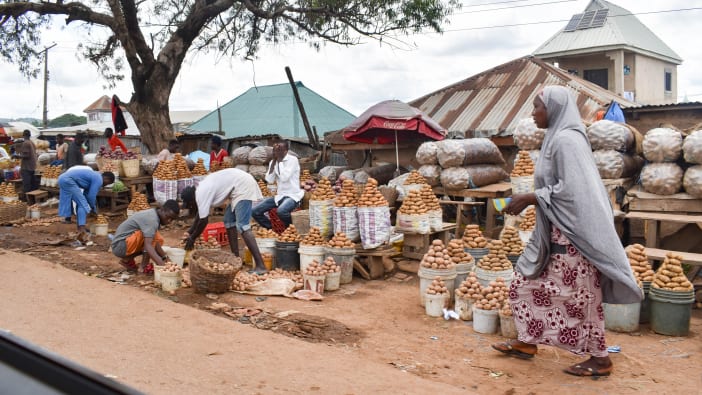Why is Tearfund at COP28?
We care about seeing an end to extreme poverty and all people having the opportunity to thrive. But communities in some of the poorest parts of the world are already suffering the most because of the unpredictable climate and having to find ways to adapt. The solutions do exist, but we need collaboration on a global scale to innovate and hold governments to account to make vital changes.
Words and good intentions are not enough if the repeated promises made by those in power are not kept.
The road to the flourishing world we all want to see is paved with hard work, accountability and justice and it’s time for wealthy nations to keep their word – including about the money that is owed.
What is Climate Finance for?
Communities who have contributed the least to causing the climate crisis are, in many cases, bearing the brunt of it. And they have the fewest resources to respond to it. The most climate-vulnerable nations are being forced to divert money away from crucial public services, such as healthcare and schooling, to protect themselves against climate impacts.
Climate finance is vital to prevent the worst effects of the climate crisis and to help communities that are the most vulnerable to climate change to adapt. Ultimately, this will save lives.
Wealthy nations have a responsibility to help communities adapt to a crisis they didn’t cause. It’s time to foot the bill, starting with delivering the promised doubling of finance for adaptation.
But, right now, wealthy nations are delaying the delivery of funds. The longer money is held back, the more costs will rise and the more lives will be lost.
What is the Loss & Damage Fund?
Many people’s lives and livelihoods are already being destroyed by the climate crisis. Wealthy nations with a history of high emissions have a responsibility to support countries suffering the worst impacts to rebuild.
Agreement was reached at COP27 to set up a fund for ‘loss and damage’ from climate impacts that now can’t be avoided. The first day of COP28 marked an important step in turning this fund into reality, with key arrangements agreed and initial pledges from a few countries, including the UK.
These are important steps forward - but the fund needs to deliver new and additional finance at scale to the communities that need it. We need to see wealthy nations fill the fund with billions, not just millions, to meet the scale of damage from the climate crisis.
What do we need from COP28 in discussions about energy?
The world can and will flourish when world leaders come together and collectively turn their backs on fossil fuels.
We’ve already seen how people living at the sharp end of the climate crisis are coming up with incredible innovations and world leaders now need to match their ambition and triple renewable energy capacity globally by 2030.
The world needs commitment to a fair and funded phase out of ALL fossil fuels at COP28.











